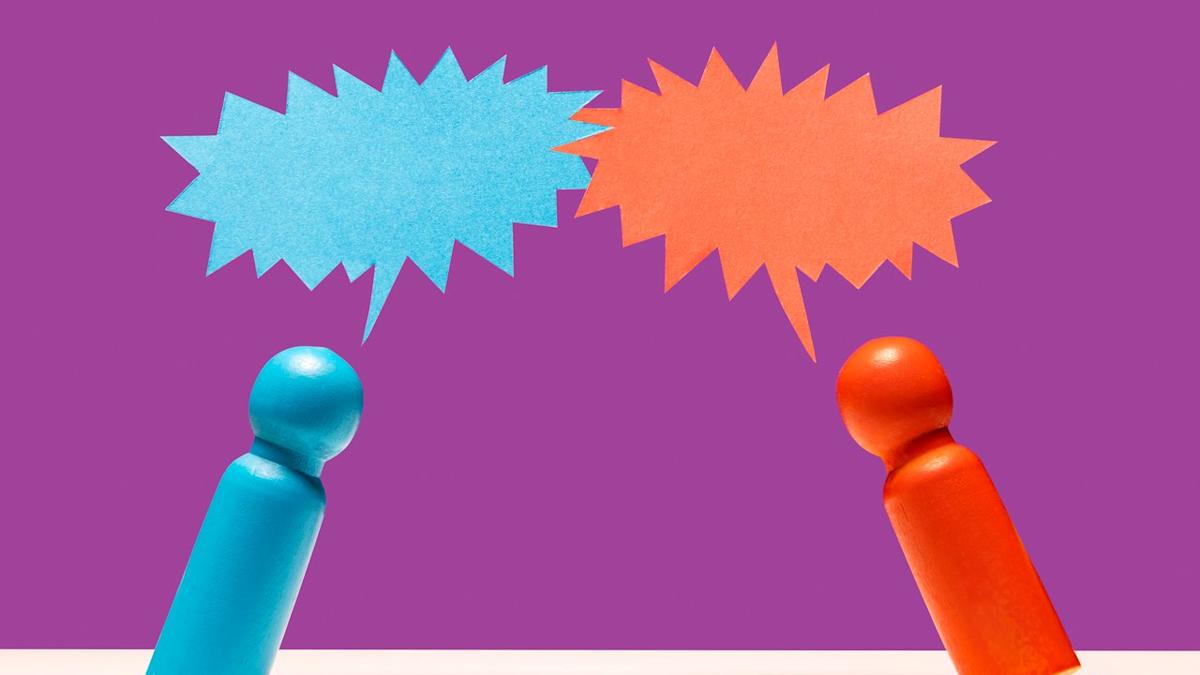A version of this article originally appeared in Quartz’s Leadership newsletter. Sign up here to get the latest leadership news and insights straight to your inbox.
A marriage that appears conflict-free may sound nice, but that’s not actually what produces a great marriage. Trust is the most important ingredient for extraordinary relationships.
You don’t achieve trust by never disagreeing with your partner. You achieve trust by signalling safety, trust, and respect even when there’s disagreement. The work of arriving at a decision together through that disharmony is what sets a marriage apart in the best of ways.
This same idea applies to business teams and workplace relationships. The absence of conflict isn’t necessarily harmony — it can just as easily be apathy. Silent agreement on decisions often result in poor buy-in later. And just like the marriage example, teams that appear harmonious are often just conflict avoidant and risk-averse.
High-performing leaders in high-performing organizations expect disagreement, and don’t work so much toward conflict avoidance as they do toward channeling conflict productively.
The supporting evidence for these ideas comes from several sources, including academic researchers and authors, Google’s Project Aristotle, and work cultures like those at hedge fund manager Ray Dalio’s Bridgewater Associates — where dissent isn’t optional, it’s required.
Karen Jehn’s research around intragroup conflict in 1995 produced a distinction between two types of conflict: task conflict and relationship conflict.
Task conflict, or what we might call a “good fight” or “good conflict,” is disagreement about problems, solutions, or decisions. It’s your team being united against the problem rather than each other.
Relationship conflict is the toxic kind, filled with personal rivalries and animosity, anger, and insults.
Task conflict produces creativity, humility, innovation, and better decision making.
Relationship conflict produced team dysfunction, reduced creativity, and lower overall performance.
Adam Grant builds on Jehn’s work in his book Think Again, in which he documented his research on high-performing Silicon Valley teams. Grant’s research shows that high-performing teams had more task conflict early — bringing to light competing perspectives — while maintaining low relationship conflict throughout.
This important distinction allows leaders to encourage debate without creating toxicity, because you’re not creating conflict, you’re making space for it. The goal is spirited disagreement about ideas, not about people. Task conflict builds better teams if the disagreement is rooted in mutual respect. (Interpersonal relationship partners can and should use this, too.)
Grant has labeled the people who do this well “disagreeable givers.” A disagreeable giver argues like they’re right and listens like they’re wrong.
In a recent newsletter, we talked with questionologist and author Warren Berger. He warned of leaders who insist that their people only come to them with solutions. That’s the sort of culture that discourages the right questions from being asked.
So the first step is decoupling problem-identification from problem-solving. The people who are best at detecting threats and inefficiencies might not be your same people who have the skills and resources to solve them.
The standard advice, Grant writes in Think Again, is to model openness and inclusiveness. Essentially, as Grant wrote: “Ask for feedback on how you can improve, and people will feel it’s safe to take risks.”
But an absence of trust will blow up this whole thing. None of it works without trust. Trust and psychological safety aren’t peripheral to productive, healthy workplace conflict. They’re a prerequisite.
If you’ve been reading Quartz Leadership, you have probably gathered that psychological safety and trust are the underpinnings of every relationship and every high-performing work team. This echoes the work of psychological safety’s greatest champion, Amy Edmondson from Harvard Business School, who coined the term “psychological safety” in the 1990s.
“Feeling safe to speak up is only half the equation,” Grant said in an episode of his WorkLife podcast. “Psychological safety isn’t about making people comfortable. It has to be coupled with accountability. That combination creates a culture where people take intelligent risks.”
People sometimes associate the idea of accountability with punishment. It can’t be that, because then there wouldn’t be safety. Accountability is about making it safe for people on your teams to speak up. But it’s also about having these team members then demonstrate their own accountability by following through on proposing solutions and taking whatever actions they can to work toward those solutions.
As leaders, we can achieve that by clarifying roles and expectations, checking progress, and rewarding follow-through, not just ideas. Grant emphasizes that recognition should go to those who act, not just those who speak.
Grant’s research shows that when people know they’ll be asked to contribute solutions, they think more critically about problems upfront, and that leads to improved team performance overall.
Just like in your relationships at home, saying or doing the “right thing” doesn’t magically eliminate years of trust erosion. Consistent behavior over time is what yields trust and, at work, what yields positive business outcomes.
Grant suggests scheduling this into your individual and team calendars. Grant discovered that managers can feel awkward initially, and it’s common to encounter skeptics. Only over time, as business leaders repeatedly demonstrate humility and curiosity (and foster them in their teams) do we see the payoff.
Ideas will begin to surface that never would have otherwise.
Your best team members will stay when they know that their voice matters. They will take risks and innovate.



Leave a Comment
Your email address will not be published. Required fields are marked *